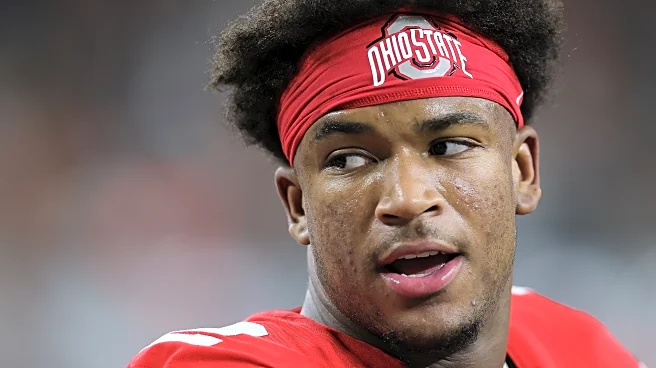What's Happening?
Netflix is actively integrating generative AI into its production processes, as revealed in its recent quarterly earnings report. The company views AI as a tool to enhance creative efficiency rather than
replace human creativity. CEO Ted Sarandos emphasized that AI can provide better tools for storytelling but does not inherently create great content. Netflix has already utilized AI in productions like 'The Eternaut' and 'Happy Gilmore 2' for special effects and pre-production tasks. Despite the potential benefits, the entertainment industry remains divided over AI's role, with concerns about its impact on jobs and creative processes.
Why It's Important?
Netflix's commitment to AI reflects a broader trend in the entertainment industry, where technology is increasingly used to streamline production and enhance visual effects. This move could set a precedent for other studios, influencing how AI is adopted across the sector. While AI offers opportunities for innovation and cost reduction, it also raises concerns about job security for visual effects artists and ethical considerations regarding the use of AI-generated content. The industry's response to these challenges will shape the future of filmmaking and content creation.
What's Next?
As Netflix continues to explore AI applications, the company and its peers will need to address the ethical and practical implications of AI in entertainment. This includes ensuring fair labor practices and maintaining creative integrity. The ongoing debate within the industry may lead to new guidelines or regulations governing AI use in media. Additionally, advancements in AI technology will likely drive further experimentation and adoption, potentially transforming traditional production methods.
Beyond the Headlines
The integration of AI in entertainment raises broader cultural questions about the nature of creativity and the role of technology in artistic expression. As AI tools become more sophisticated, the line between human and machine-generated content may blur, challenging traditional notions of authorship and originality. The industry's approach to these issues will influence public perception and acceptance of AI-enhanced media.









